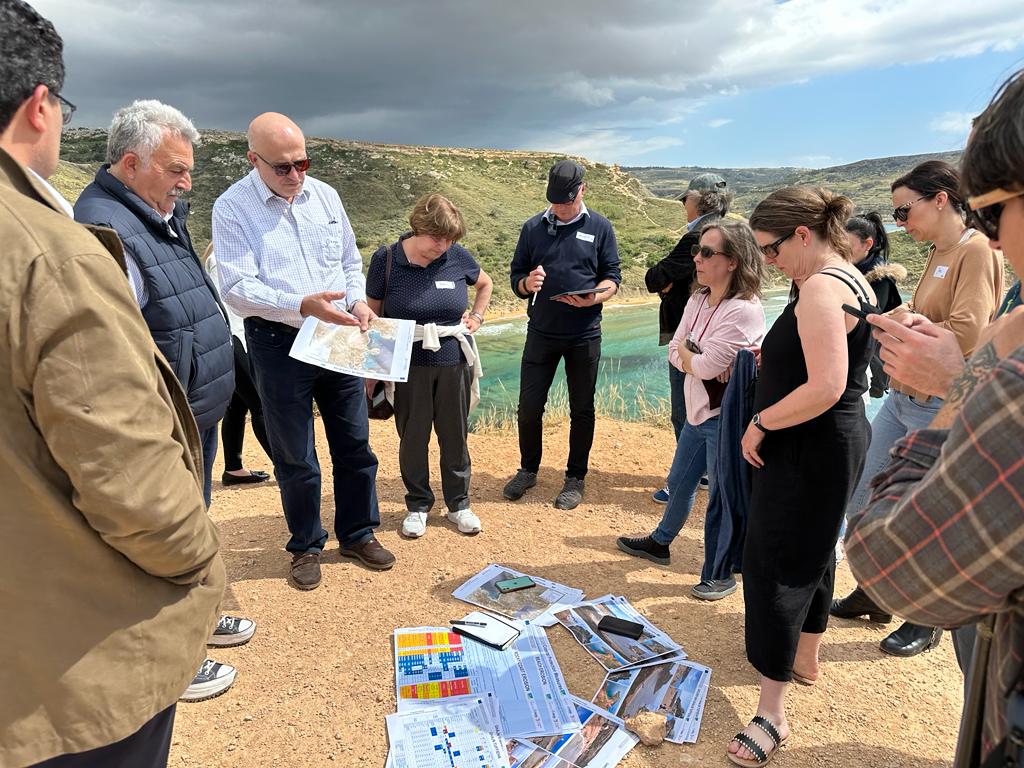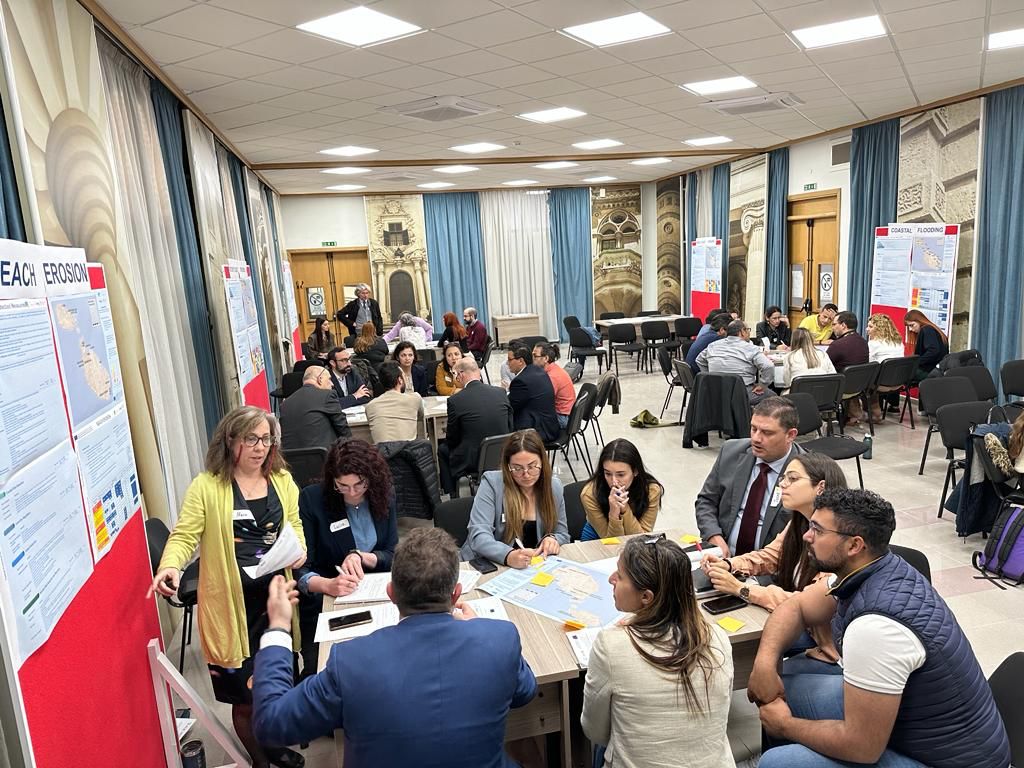The European project COASTAL-COVER for the protection of the Malta coastline, in which IHCantabria has had a great involvement, comes to an end
Today was held the closing ceremony or culmination of the European project COASTAL-COVER, through a virtual meeting attended by representatives of all the entities that contributed to the development of this project. This project focused on the protection of Malta’s coastline and its adaptation to climate change. The Environmental Hydraulics Institute of the University of Cantabria (IHCantabria) contributed to this project with technical support.
This two-year project was organized in two stages: a first diagnostic stage, to improve understanding of the problems arising from coastal erosion and flooding and the effects of climate change on both, and a second stage, for the development of the national strategy for coastal protection and adaptation. IHCantabria played an active role in both stages, although its participation in the first stage, led by Jara Martínez, researcher of the Coastal Engineering and Management Group of IHCantabria, stands out, in which the integrated diagnosis of coastal problems was carried out in Malta.
The collaborative effort involved not only IHCantabria staff, but also members of the EUCC, Aktis Hydraulics, the University of Malta (UoM), among other international experts.
The COASTAL-COVER project was commissioned by the European Commission’s Directorate General for Structural Reforms Support (DG REFORM), in response to a request from the Public Works Department (PWD) of the Maltese Ministry of Public Works and Planning (MPWP), and the Malta Tourism Authority (MTA). The project was financed with 600,000 euros, co-financed with European funds.
Background, motivation and objectives of the project
Malta faces several challenges stemming from its vulnerability to natural coastal processes and the consequences of climate change, because urbanization, infrastructure and economic investment have traditionally focused on the coastline, assuming that coastal areas will remain stable and safe, that sea level would not change, and that potential hazards such as flooding and erosion would remain within a predictable range. Trends clearly indicate that these scenarios are adversely shifting beyond limits, creating unprecedented coastal climate risks to Malta’s economic well-being and investment. Therefore, strategic planning and management is essential to improve coastal protection, adaptation and resilience. This is recognized by the Maltese Minister of Public Works and Planning, Stefan Zrinso Azzopardi, who recently expressed the need “to understand the best practices that are being adopted and implemented by our European and Mediterranean counterparts”, as well as “to identify where the highest risks are and what are the best possible solutions”, given the natural resources and the realities of the islands of Malta.
In response to this need, the overall objective of the Coastal-COVER project is to formulate a national instrument that provides the necessary strategic direction in a holistic framework, based on three specific objectives: 1) Establish an agreed methodology for the integrated assessment of coastal erosion risk in the context of climate change; 2) conduct a national risk assessment and prepare a national strategy based on a nationally integrated diagnosis, identifying coastal management units to support the prioritization of protection/adaptation measures, and 3) develop guidelines for action through a nationally approved catalog of interventions, priorities for risk mitigation measures, and a participatory approach for the selection and prioritization of local interventions.
Elisa Ferreira, Commissioner for Cohesion and Reforms of the European Commission, said that “in Malta, the European Technical Support Instrument helps national authorities and local communities to understand the phenomenon of coastal erosion and build capacity in the administration to mitigate its effects” and highlighted this project as an “example of how the European Union continues to support Member States in their efforts to achieve important reforms that improve the quality of life, the health of our planet and bring sustainable growth”.
More information about the European COASTAL-COVER project: https://reform-support.ec.europa.eu/what-we-do/green-transition/coastal-protection-strategy-malta_en




From left to right: Juan Jesus Viadero, Albert Gallego, Jara Martinez and Paula Gomes, members of the IHCantabria research team that participated in the COASTAL-COVER project


